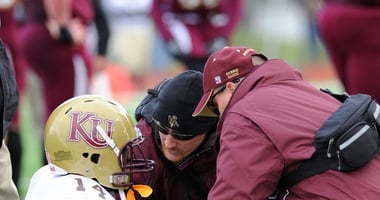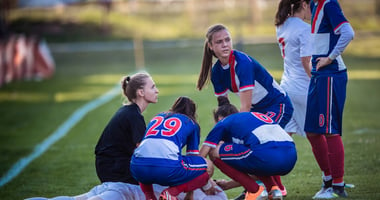A small study of 49 adolescent patients with persistent postconcussive symptoms indicates that they...
Concussions From Youth Sports, Recreation May Be Underreported in Health Care Settings
 |
Previous estimates of sports- and recreation-related concussions have tended to cover organized school athletics but not out-of-school sports or general recreational activities, especially by younger children, Mersine Bryan, M.D., a fellow and acting instructor of pediatrics at the University of Washington, Seattle, and colleagues wrote.
To generate a national estimate of sports- and recreation-related concussions for 2013—the year for which most recent data were available—Bryan and colleagues analyzed data contained in three large national databases that included patients seen in health care settings, as well as concussions reported to high school athletic trainers and documented in recently published literature.
Of the 1.1 to 1.9 million youth believed to be affected by sports- and recreation-related concussions annually, the authors estimated more than half were not seen in health care settings.
“The large number of unreported concussions identified in our study, between 511,590 and 1,240,972, indicates a need for a cultural shift in the recognition of SRRCs [sports- and recreation-related concussions],” said Bryan, calling for a more accurate surveillance system. “Surveillance for SRRCs must focus on recognizing and treating concussions across all age groups and include recreational activities.”
For related information, see the Psychiatric News articles “Baseline Somatization May Predict Sports-Related Concussion Recovery” and “Blood Test May Detect Concussions Days Later.”
(Image: iStock/IPGGutenbergUKLtd)





